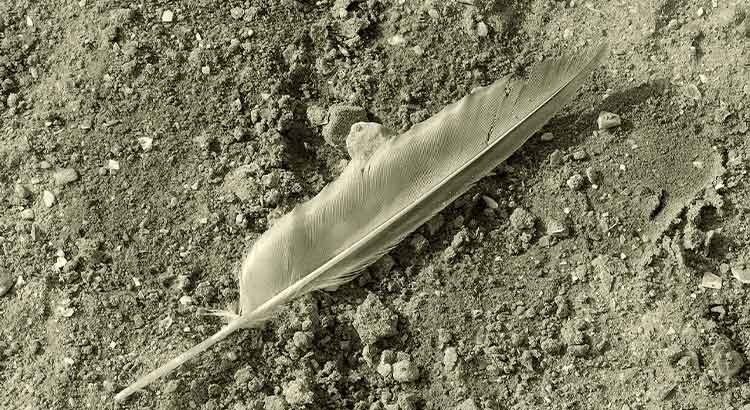It is with great enthusiasm that I read notes from writers justifying, in this century, the use of ink and paper. It is the arguments concerning productivity that most impress me: for many, the cerebral rhythm seems to fit better with manual writing. I am amazed to note that, for centuries, this is exactly how literature has been made, by this method that is as averse to my way of writing. There is no doubt that there is a certain charm, a certain enchantment in seeing the ink on the paper, in seeing in the handwriting another trace of the author’s uniqueness, in seeing the natural cadence of handwriting, whereby slowly the letters take shape, the idea turns into words, and the mental creation materializes. It is all stimulating. But… what to say? These writers claim that the slowness of the method favors fair reflection and, therefore, more precise words emerge. For my part, I only know writing as a process much more like the destruction and reconstruction of sentences: the mind, aided by the rapid beating of the fingers on the keys, spits out ideas disorderly on the screen; the brain then reasons and goes about ordering and shaping these ideas, which are then rewritten in a more appropriate manner. Every two sentences, one is completely erased and better conformed in a new attempt; at the end of the paragraph, new corrections… So here I am left wondering what I would do if I had to adapt myself to paper and ink: and it seems to me, more than ever, that Kafka’s ever-burning fire is justified.
Tag: writing
The Design of the “Great Work”
Goethe, in the Conversations, regrets having allowed himself to be seduced by the design of the “great work”. He says he knows how much it has harmed him, and regrets that he has allowed himself to block his mind for its valiant spontaneous manifestations which, although they demanded attention, had to be discarded for the sake of the greater goal. Understandable… it is not hard to admit that something is lost due to this need for concentration of effort that is imperative for the creation of a “major work”, as Goethe says. But perhaps it is a fair price, as perhaps it is risky to bet all one’s chips on a fragmentary, occasionally inspired work. Much of Goethe derives from Faust, and if he lost something by creating it, well, he gained it after all! It is very difficult to fully adhere to the recommendation to avoid the “great works” when we see that the best of the great authors have come from them. If, on the one hand, it is very justly observed that they are dangerous, and that perhaps they are not indicated for the majority of artists, on the other hand, in some cases it seems extremely beneficial to channel efforts toward a single purpose.
Latin Syntactic Flexibility
The student who is resistant enough to overcome the terrible difficulties Latin presents will be rewarded with unlimited access to the true beauty of Latin syntactic flexibility, so intricate to the brain educated in modern Romance languages. This is one of the most notable distinguishing features of Portuguese as compared to other modern languages, making them seem harsh and prosaic. To appreciate the syntactic variety of the Latin constructions is, in fact, to appreciate the degree of creativity with which the author articulates the discourse, variegating and surprising. Without a doubt, it is a pleasure that justifies years of effort to learn Latin.
Is Rhyme Indispensable?
Although I particularly appreciate rhymed verse, I would never endorse Bilac and Guimarães Passos, who maintained “that in any verse composition one must not prescind from rhyme. It is indispensable”. There are several reasons for this. But one of them deserves special mention. I do not know how the aforementioned poets composed, but it seems necessary to me, after skipping the whole process of ideation of the poem, that a draft be made of it. If I want to make rhymes, then I first sketch the poem in blank verse, to then concentrate on the rhythm, the rhymes, and the careful selection of words. I realize clearly that if I were to worry about rhymes at this point in the draft, it would only hinder my creative impulse, interrupting the flow of ideas to open a dictionary, something absolutely counterproductive. Therefore, I have to conclude that this creative impulse, in its spontaneous form, calls for manifestation in blank verse—not to say free verse. Well then: I know that not every great artistic effect is spontaneous, quite the contrary, as almost all the brilliance of a work comes from carefully thought out details. Rhyme, therefore, although an artificiality, is justified. But practice shows, time and time again, that to rhyme verses is to adulterate them, and even though one may gain in beauty by doing so, that initial naturalness is lost. Finally, I get where I want to go. There will be verses in which the poet will be so stimulated that he will feel himself emotionally pouring his soul out onto the paper; verses that will come out like an avalanche, that will express his innermost self and will spring forth with a momentum and sharpness different from what he normally creates. I am not sure how much is gained by rhyming such verses, I mean, it seems to me that the poet who deforms them to fit formalities may commit a crime against himself and insult the very singular moment in which he conceived them.


